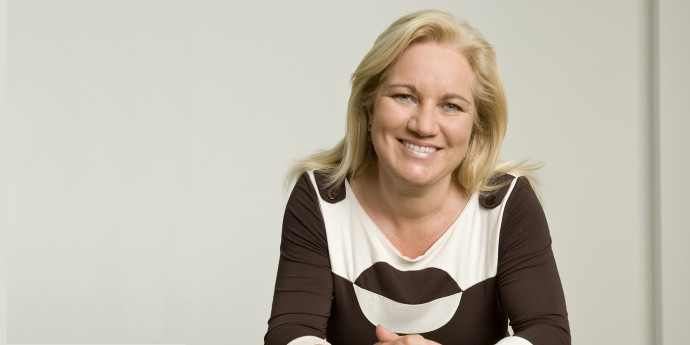Seeing beyond what you know
Having independent directors enables huge step-change when required.

About Lesley Kennedy and Maven
Maven is a strategic and operations consultancy founded in the late 1990s. Lesley joined the company in 2002 and was part of the management buy-out in 2004, and has overseen Maven's complete transformation from a Wellington-focused company providing IT consultancy, to one that now operates nationally, making early inroads into offshore markets, and expanding its service offering.
Putting structures in place
We felt we needed a more formal board structure because we believe there's value in having an external perspective, which you can only really get from non-executive, independent directors. Because we had just completed a management buy-out and were establishing a new board, we wanted an independent chair. Someone who'd been there, done that, knew how to run a board, could teach us how to do what we needed to do in terms of good governance.
Find out more about starting a board
Under the previous ownership, the owners were basically the board. They didn't have independent directors.
We managed to find someone who was ideal. He was an experienced director and he coached us along the way. He set up all the compliance structures and taught us how to behave as a board. We had a board of five, the independent chair and four internal directors.
Moving from operational to strategic
In the early days after the buy-out, our board meetings were quite operational because we needed to get governance structures and disciplines in place. Once the systems, processes and reporting structures were locked down, the board had the freedom to move to a predominantly strategic focus.
Nowadays, the business-as-usual reporting only takes about 15 minutes. Reports are discussed by exception in that board members will debate any issues arising. The remainder, and major part of the meeting has a strategic focus. We're there mainly to look forward by asking the questions of what we're doing on the most important initiatives on the programme and looking for opportunities. This is the exciting bit because you can seriously discuss a wider range of topics and get those perspectives. Whether your business is big or small is irrelevant because your board can grow with you. Even before we rebranded to Maven in 2006, our founding company – AMR – had an internal board; we recognised even then that there was a level of governance required.
While I've got no regrets I think we should have appointed another independent director earlier than we did. Some of the more painful lessons could have been avoided and we may have been able to get further down the track had we had more perspective.
The benefit of independence
Over time, independent directors (and chairmen) can have their independence eroded because if they've done their job they'll eventually have an intimate understanding of how your business works. On one level this knowledge and acculturation is a good thing. The downside is that you can lose the edge that comes from not having board members asking the "dumb" questions. The so-called dumb questions are often those that need to be asked – challenging the status quo and decay that goes with "doing things because that's how we've always done them." Familiarity doesn't breed contempt but it can breed a complacency around the board table and that goes with getting too comfortable. Put another way, having the same directors on the board for too long – whether they're internal or external – risks having the same questions asked again and again and – no surprises – hearing the same answers.
True independence is vital but has to be refreshed periodically to maximise the benefits.
Many minds bring an idea to life
As an owner of a business, you can grow a great idea into an exceptional idea if you put ego to one side and allow other people - especially your independents – to help you grow it. In other words, acknowledge that you aren't the font of all that is knowledgeable, creative, sparkly and brilliant. Yes, you may generate the idea initially but invariably it will grow exponentially if you water that idea with other minds. The organic metaphor is appropriate because as a CE I get to grow as well, meaning I have better ideas, meaning I do things better, and smarter. Independent directors are vital in this process. With no vested financial interest in the company, an independent director has the freedom to ask questions and help make decisions that are unfettered by any personal financial gain (or loss). This makes board's decisions more robust.
Key messages
- A board with independent directors is vital to your company's health. If you're really serious about achieving business growth, achieving your goals, and making things happen, then a board is vital. The absence of a board says to me you're playing at business and all the aspirations for growth are mere rhetoric.
- When you're a small business you may not be able to afford a full board. If this is your situation, establish an advisory board as a first step; populated with people you can bounce ideas off. When you're big enough to move to a more formal board structure, you must have at least one independent director. First up, this should be the chair because of the experience, knowledge and perspective that you will gain. This will allow you to grow sustainably.
- Independent directors will challenge, question and enhance your thinking, making your board's decisions more robust.
As an owner of a business, you can grow a great idea into an exceptional idea if you put to one side and allow other people - especially your independents - to help you grow it. In other words, acknowledge that you are aren't the font of all that is knowledgeable, creative, sparkly and brilliant.
Find out more about starting a board